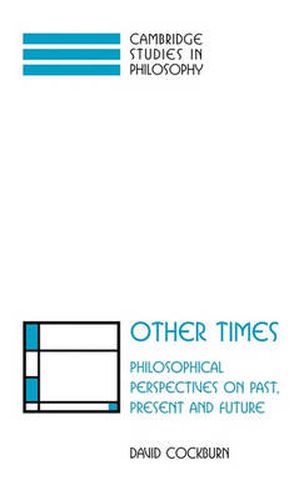Readings Newsletter
Become a Readings Member to make your shopping experience even easier.
Sign in or sign up for free!
You’re not far away from qualifying for FREE standard shipping within Australia
You’ve qualified for FREE standard shipping within Australia
The cart is loading…






We view things from a certain position in time: in our language, thought, feelings and actions, we draw distinctions between what has happened, is happening, and will happen. Current approaches to this feature of our lives - those seen in disputes between tensed and tenseless theories, between realist and anti-realist treatments of past and future, and in accounts of historical knowledge - embody serious misunderstandings of the character of the issues; they misconstrue the relation between metaphysics and ethics, and the way to characterise the kind of sense which tensed language has. David Cockburn argues that the notion of ‘reasons for emotion’ must have a central place in any account of meaning, and that the present should have no priority in our understanding of tense. This allows for a more satisfactory articulation of the place of past, present and future in our thought, and of the form which criticism of our thought might take.
$9.00 standard shipping within Australia
FREE standard shipping within Australia for orders over $100.00
Express & International shipping calculated at checkout
We view things from a certain position in time: in our language, thought, feelings and actions, we draw distinctions between what has happened, is happening, and will happen. Current approaches to this feature of our lives - those seen in disputes between tensed and tenseless theories, between realist and anti-realist treatments of past and future, and in accounts of historical knowledge - embody serious misunderstandings of the character of the issues; they misconstrue the relation between metaphysics and ethics, and the way to characterise the kind of sense which tensed language has. David Cockburn argues that the notion of ‘reasons for emotion’ must have a central place in any account of meaning, and that the present should have no priority in our understanding of tense. This allows for a more satisfactory articulation of the place of past, present and future in our thought, and of the form which criticism of our thought might take.